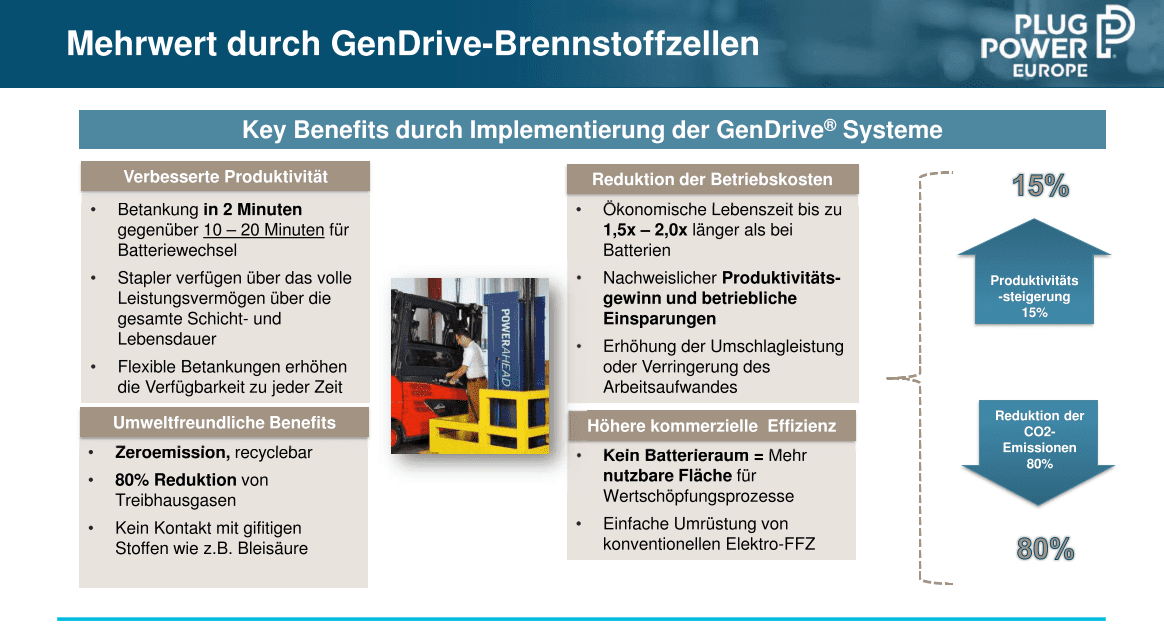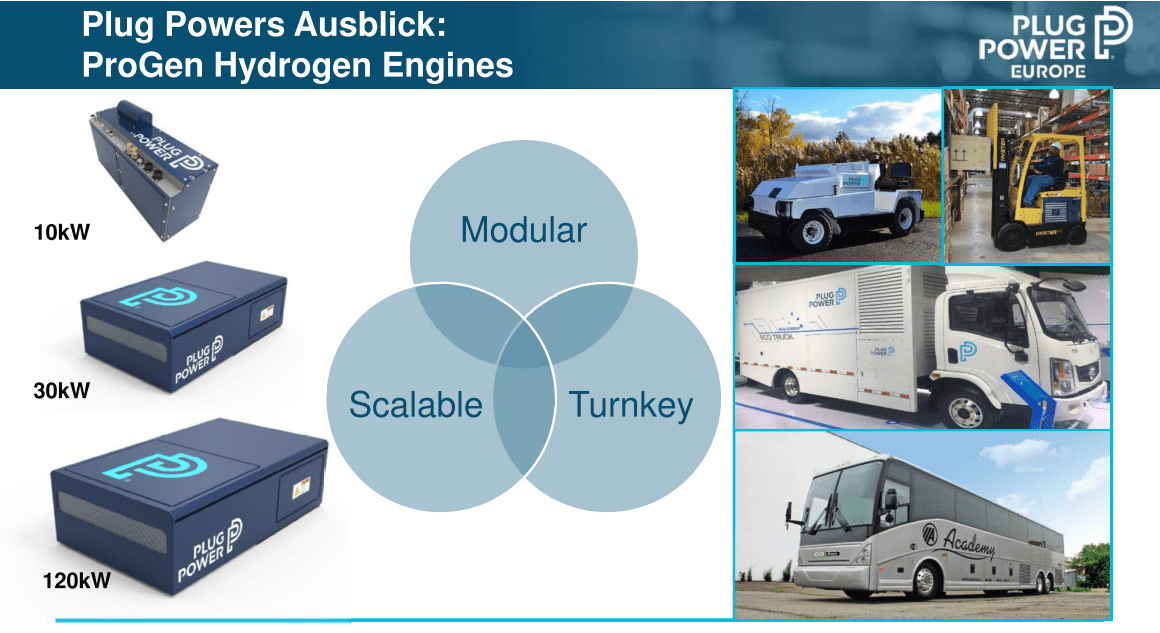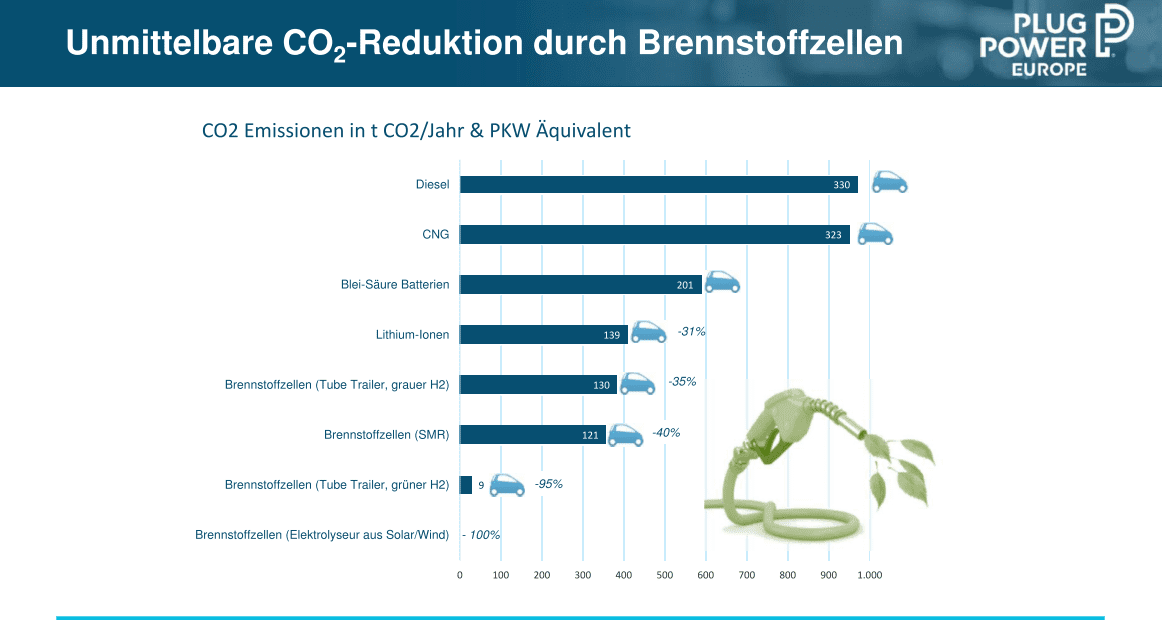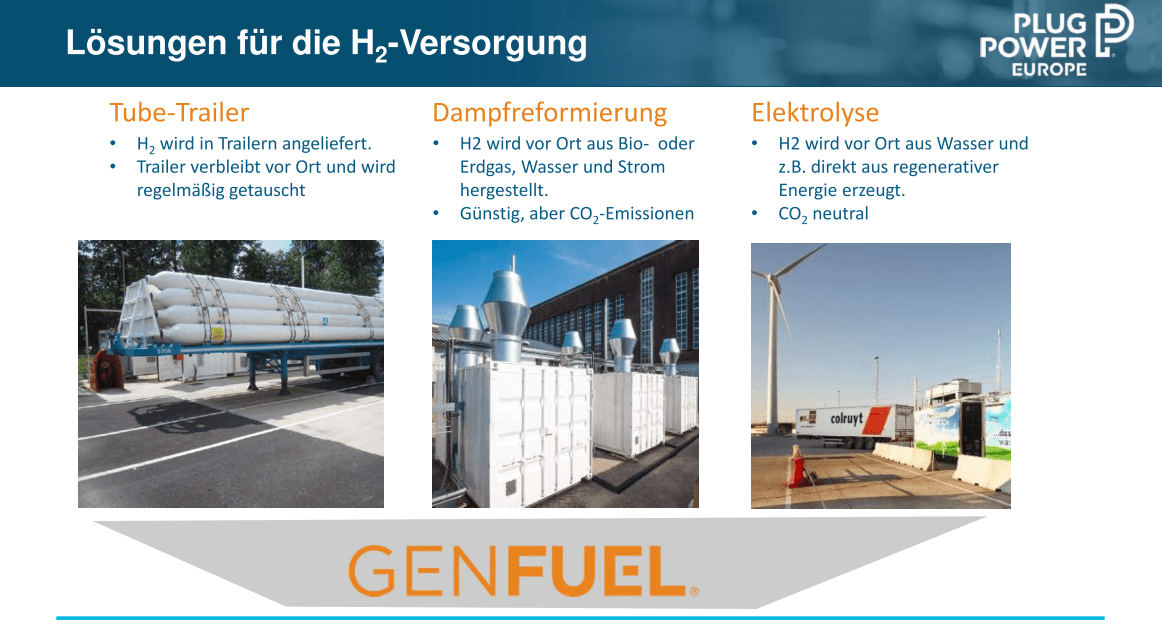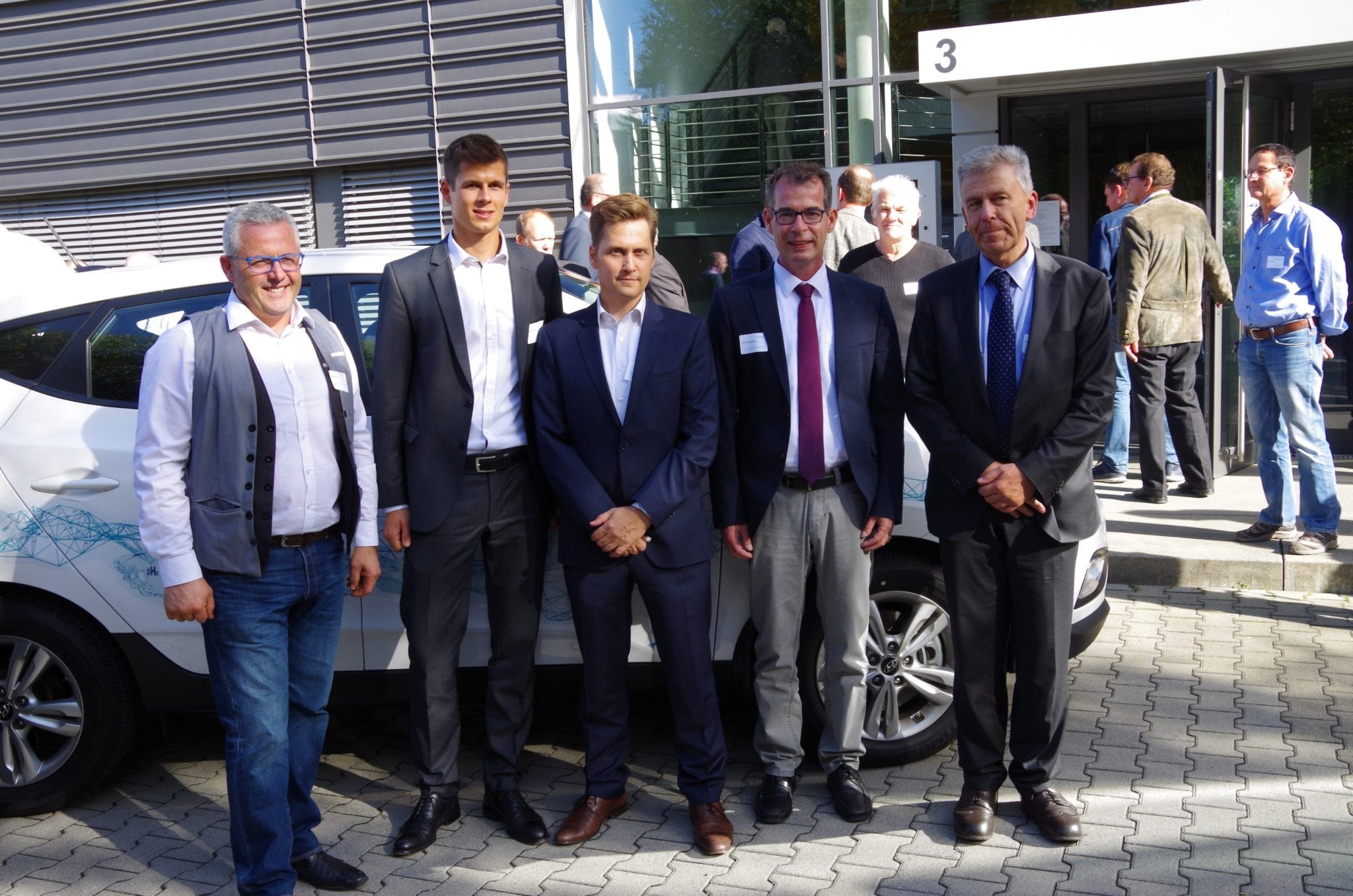Plug Power Presents at European Mobility Conference
Last week, Plug Power’s Director of European Sales, Tim Schultz, presented at the European Mobility Conference on the future with hydrogen and fuel cells (Mobilität der Zukunft mit Wasserstoff und Brennstoffzelle) in Koblenz, Germany. The event partner was the Hydrogen Fuel Cell (H2BZ) Network Rheinland-Pfalz e. V.
The event focused on the following topics:
- The hydrogen fuel cell network in Rhineland-Palatinate, Germany
- Market development and the maturity of fuel cell electric cars, trucks, and buses
- Fuel cell-electric industrial trucks within industrial and logistics companies
- Fuel cell technology for green logistics and power supply
- Decentralized generation of green hydrogen from wind and solar power
Tim Schultz discussed the economical use of fuel cells in logistics, showing examples of the successful use of H2-powered industrial vehicles.
A hydrogen-powered vehicle fleet offers many advantages over traditional fuel. Increased productivity, more facility space for revenue-generating activities, elimination of peak electricity demand, and reduced CO2 emissions are all important reasons why some of the world’s leading companies, including German-company BMW, have adopted hydrogen fuel cells.
From our beginning, we’ve been innovating in the hydrogen fuel cell industry, helping provide clean energy solutions in industries that have an impact on business – powering forklifts, airport baggage tuggers, and industrial AGVs. Plug Power is taking that innovation further and has expanded into on-road fleets with our ProGen hydrogen engines to help power on-road vehicles such as electric delivery vans – and this is only the beginning.
Hydrogen fuel cell vehicles (FCV) are an important component of CO2 reduction efforts around the world. When compared with emissions by several other vehicle fuels, one can readily see the savings enabled by hydrogen. Compared to diesel fuel, hydrogen decreases emissions “wells to wheels” from between 61% and 100%, depending on the source of hydrogen. Compared to even vehicles powered by electric grid-charged lead-acid batteries, the savings ranges from 35% to 100%.
Hydrogen fuel is made available from a number of sources, including delivery from production facility to fueling station via tube-trailer, on-site hydrogen production by steam reforming of bio- or natural gas or by water electrolysis on site. Each of these is available and currently being used at commercial locations – and all are important in order to increase the availability of hydrogen for a variety of different use cases.
According to The Hydrogen Council’s Scaling Up report, “In 2030, 1 in 12 cars sold in California, Germany, Japan, and South Korea could be powered by hydrogen.” Following the presentations, conference participants traveled to a nearby hydrogen filling station serving the autobahn. There, they witnessed a vehicle being fueled with hydrogen.
Plug Power was excited to be invited to participate in the conference. It is inspiring to see the progress being made by such dedicated companies, all focused on improving mobility through hydrogen and fuel cells. It takes an industry to build an industry – and Plug Power will continue our drive toward the hydrogen city.
#InfiniteDrive
